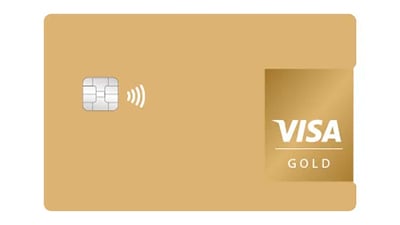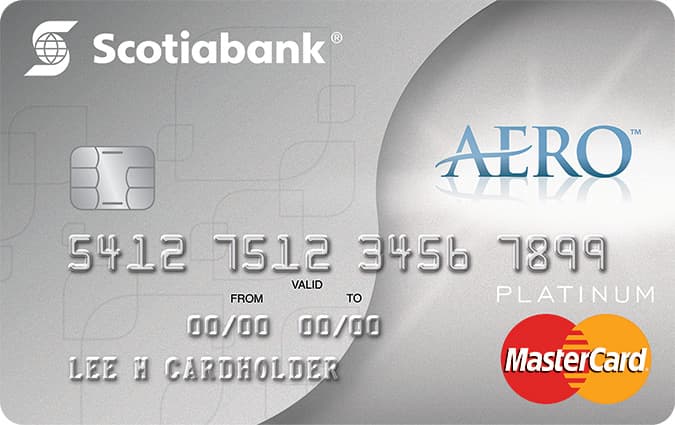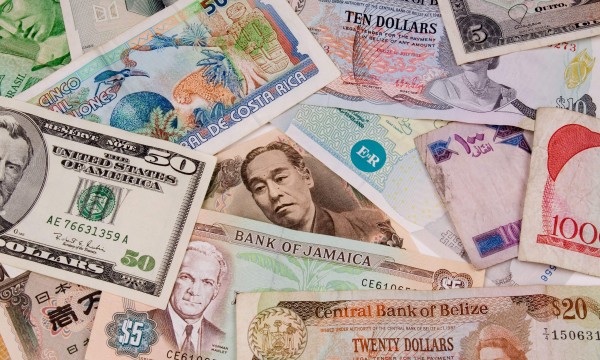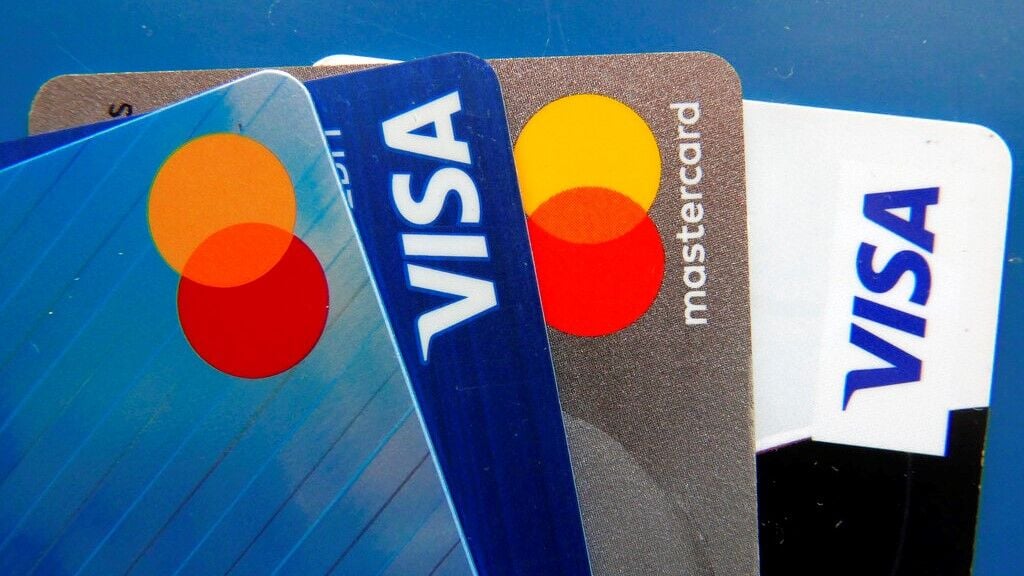Are you planning a vacation to Jamaica? Do you need to know what kind of credit cards will be accepted in the area? Look no further! This blog post will provide all the information you need about credit cards accepted in Jamaica. Read on for more details!
Introduction to Credit Card Acceptance in Jamaica

Jamaica has become increasingly connected to the global economy, and credit card acceptance has grown immensely in recent years. Keycard, the first credit card introduced in Jamaica, is accepted at over 9000 merchant locations island wide. Visa Gold and Sagicor Bank Visa Classic Credit Card are both internationally accepted cards that offer competitive interest rates and secure transactions. JN Bank also provides Visa Gold and Visa Classic Credit Cards with up to US$25,000 Credit and price protection of up to US$400.
NCB also offers a Visa Classic Credit Card which is accepted at over 10,000 merchants locally and millions of merchants worldwide. The only credit card that allows you to earn MAGNA Rewards Points with every purchase is Keycard. As of August 7th 2020 persons who conduct business at the Passport, Immigration and Citizenship Agency (PICA) will be able to pay for all services using their preferred credit cards including Keycard, Visa Gold or Sagicor Bank Visa Classic Credit Card as well as other major international credit cards such as American Express, MasterCard or Discover.
So if you’re looking for an easy way to make purchases in Jamaica without having to carry cash around – then using a credit card may be just what you need! With so many options available now it’s easy to find the right one that suits your needs.
Popular Credit Card Brands in Jamaica

Are you looking for the right credit card to suit your needs in Jamaica? If so, look no further! There are a variety of popular credit cards available in Jamaica that offer competitive rates and APR, as well as rewards for spending money.
Sagicor Care Shield Plan offers one of the lowest annual membership fees at J$5,527.90/US$88.84 and no additional charge for supplementary cards. The FGB VISA Classic Credit Card is a Jamaican dollar-denominated card with great freedom to make purchases at home or abroad. Additionally, the ScotiaBank Visa® Classic Gold Card provides secure travelling with an internationally accepted card and competitive interest rates.
No matter which card you choose, all of these popular credit cards offer great perks while helping you save money in the long run! Compare rates and APR today to find the best fit for you!
Advantages of Using a Credit Card in Jamaica

Using a credit card in Jamaica has many advantages. Credit cards provide universal acceptance, easy access to cash, and convenience when making purchases. With a credit card, you don’t have to worry about finding an ATM or branch to withdraw cash. Additionally, those who pay their balance in full and on time each month may consider that they are getting free money from the bank.
Using a credit card also provides secure payments and convenient borrowing for larger purchases. Credit cards offer additional benefits such as rewards programmes which can include cash back, travel rewards, or special arrangements with particular merchants. There are several different types of credit cards available in Jamaica including Mastercard and Visa branded cards which are widely accepted across the island nation and American Express cards which are accepted at most large hotels and shops. Additionally, FGB Credit Cards offer excellent benefits such as access to the best rewards programme in Jamaica where points can be redeemed for various items such as flights or merchandise.
Overall, using a credit card in Jamaica has many advantages over paying with cash or debit cards including universal acceptance, easy access to cash, convenient borrowing for larger purchases, secure payments, reward programmes and more!
Benefits of Using a Local Bank’s Credit Card
Using a local bank’s credit card offers numerous advantages for consumers. With a local credit card, you can save money on fees and get access to exclusive benefits that aren’t available with other cards. Here are some of the top benefits of using a local bank’s credit card:
1. Lower Fees: Many banks offer lower interest rates and annual fees when you use their credit cards. This can save you hundreds of dollars over the course of a year.
2. Easier Access to Cash: Local banks typically have more convenient ways to access cash when needed, such as through an ATM network or by transferring funds from your account directly to your credit card.
3. Better Customer Service: When it comes to dealing with customer service issues, local banks are often more responsive than large national banks because they know their customers better and value their loyalty more highly.
4. Increased Security: Local banks use advanced security measures, such as microchips embedded in the cards, which reduce fraud and make transactions more secure for customers.
5. Universal Acceptance: Most local bank credit cards are accepted at millions of merchants both locally and worldwide, making them ideal for travelers who need access to cash without worrying about international acceptance restrictions or currency exchange issues.
Overall, using a local bank’s credit card can be an excellent way to save money while enjoying great customer service and increased security measures that protect your accounts from fraud and identity theft
What You Need to Know About Local Currency Exchange Rates

When travelling around the world, it’s important to understand the local currency exchange rates. Currency exchange rates can fluctuate from day-to-day, so it’s best to know what current rates are before traveling. Here is a brief overview of what you need to know about local currency exchange rates:
1. Official currency exchange rates vary daily – You should shop around for the best rate if you want to get the most out of your money.
2. Most Jamaican ATMs accept international bank cards with Visa, MasterCard, NCB offers its customers services in any of the four major hard currencies (USD, CAD, EUR and GBP).
3. Credit cards typically add 3% (for the major currencies; more for other currencies). Foreign exchange kiosks and banks often add 5% when you use them for currency conversion services.
4. Checkout Currency, Cash and Cheque BUY & SELL Rates for popular currency to get an idea of how much money you will have when exchanging foreign currencies into Jamaican dollars (JMD).
5. The inflation target is between 0 – 6%, while CPI Inflation (12 month ptp) is 9.9%.
6. At Global Exchange we offer currency exchange services with payment options like debit or credit card or cash if you want to avoid paying extra fees on top of existing charges on foreign transactions through banks and ATMs abroad.
7. FGB is a commercial bank from GraceKennedy Limited that offers online and mobile banking platform through which customers can pay with their debit or credit cards or even cash in order to save time instead of having to stand in queues
How to Use Your Credit Cards Safely While Travelling Abroad
Travelling abroad can be an exciting experience, but it’s important to be aware of the risks associated with credit card usage in foreign countries. Here are some tips to help you use your credit cards safely and securely while travelling abroad:
1. Notify Your Credit Card Issuer: Before leaving for your trip, contact your credit card issuer and let them know when and where you’re travelling, plus which cards you’ll be using. This will help ensure that any suspicious activity is quickly identified and addressed.
2. Research Credit Cards for Foreign Countries: Find out which credit cards are accepted in the country you’re visiting – not all cards are accepted everywhere. Look for cards that offer travel assistance, 24-hour call centre services, worldwide recognition and currency conversion fees that won’t break the bank.
3. Don’t Use Unsecure ATMs: Stick to ATMs located inside banks or well-known establishments such as supermarkets or pharmacies when withdrawing money abroad – avoid isolated ATMs where possible. Also watch out for skimming devices on ATMs – always use one hand to cover the keypad when entering your PIN number so other people can’t see it.
4. Set Up Fraud Alerts: Ask your card issuer if they offer fraud alerts so you can monitor activity on your account more closely while travelling abroad – many issuers do provide this service free of charge. Additionally, keep an eye on all of your accounts (including debit/ATM cards) so as to quickly identify any suspicious activity or fraudulent transactions made against them during or after a trip overseas..
5 Monitor Your Spending Habits: Keep track of all purchases made with a credit
Steps for Choosing the Right Credit Card for Your Needs
Are you looking for a credit card, but not sure which one is right for you? Choosing the right credit card can be tricky. Here are some steps to help make it easier.
1. Analyze Your Needs: Before you start shopping around, take time to assess your needs and budget. Figure out how much credit you need, what type of rewards or features you’d like to have and how much interest you can afford to pay on your balance each month.
2. Compare Credit Cards: Research different credit cards that meet your needs and compare their rates, fees, rewards programs and other features side-by-side. Make sure to read the fine print so that you know exactly what the terms of each card are before applying.
3. Check Your Credit Score: Knowing your credit score before applying for a credit card is important because it will help determine which cards are best suited for your financial situation and whether or not you’ll be approved for a particular card. Generally speaking, if your score is above 700, then most banks will likely approve your application with favorable terms such as low rates and good rewards programs. If it’s in the 600s range then it’s best to stick with basic cards that have fewer rewards programs but offer lower interest rates.
4. Apply: Once you’ve chosen the right card based on its terms and fees as well as any rewards programs offered by the bank or issuer, fill out an online application form accurately with all required information in order to speed up the process of getting approved for a new credit card account
5. Monitor Your Spending: After getting approved for a new credit card account make sure that you keep
Set a Budget for Your Shopping Purchases
Do you want to enjoy a shopping spree without breaking the bank? Setting a budget is key to make sure you don’t overspend. Here are some simple steps to help you get started:
1. Determine how much money you can afford to spend. Calculate your income and expenses, subtracting your expenses from your income. This will give you an idea of how much money is left for shopping.
2. Prioritize what purchases are necessary and which are not. Make sure that the necessities such as food, clothing, and rent are covered first before spending on non-essential items such as entertainment or luxury items.
3. Set a limit for each item that you plan to purchase during your shopping trip. This will help keep track of how much money you have spent so far and help prevent impulse buying decisions that can quickly add up in cost over time.
4. Use cash whenever possible instead of credit cards so that it will be easier to stick to your budgeted amount without going over it when using plastic money instead of real money!
5. Research prices beforehand so that way you know where the best deals are located and take advantage of special discounts or promotions! You can also try online shopping for better bargains if available in the area where you live or shop from those stores with price matching policies if they offer it too!
6 Finally, keep track of all receipts for future reference just in case there is an issue with any product purchased or if something needs returned/exchanged due to quality issues later on down the line – this way everything will be documented properly!
Tips for Avoiding High Interest Rates and Fees

Are you struggling with high interest rates and fees on your credit card? If so, then you’re not alone. Interest rates and fees can add up quickly, leaving you with an unmanageable balance. Fortunately, there are several steps you can take to avoid excessive interest and fees.
The first step to avoiding high interest rates is to pay off your balance in full each month before the payment due date. This will help ensure that no interest charges will be applied to your account. It’s also important to compare rates and APR from different credit cards to find the one that suits you best. In addition, some credit cards offer rewards programs which can help offset any associated costs with using credit cards.
Another way of avoiding high interest rates is by being mindful of when payments are due. Late payments will not only incur fees but may also lead to an increase in the applicable rate of interest for future purchases. Additionally, it’s a good idea to review the terms and conditions associated with each card before use so that you are aware of any hidden fees or other charges that may apply.
Finally, if possible, consider utilizing a savings account or other low-interest loan option as an alternative source of financing for large purchases rather than relying on a credit card alone. This can help keep your debt under control while still allowing access to necessary funds without incurring too much additional debt or paying exorbitant amounts of interest or fees over time.
By following these simple tips, you can take control of your finances and avoid paying unnecessary amounts in both interest and fees on your credit cards!
The Role of Merchants and Payment Providers in Accepting Credit Cards
The role of merchants and payment providers in accepting credit cards is an essential part of the modern consumer experience. With the prevalence of digital payments, merchants and payment providers must ensure that they are providing fast, secure, and convenient payment options for their customers. By accepting credit cards, merchants can offer customers a variety of payment methods, including online portals and mobile apps. Payment providers also play a role in providing access to funds for purchases made with credit cards.
For merchants, accepting credit cards provides them with a reliable way to receive payments quickly and securely from their customers, reducing the risk of fraudulent activity or chargebacks associated with other forms of payment. Merchants can benefit from faster payments as well as greater flexibility when it comes to setting up pricing and promotions for their products or services. Additionally, many merchants are able to accept international payments via different currency types when they accept credit cards.
Payment providers are responsible for processing transactions between cardholders and merchants. They handle all aspects of the transaction from verifying customer information through authorization checks to ensuring that funds are securely transferred between parties involved in the transaction. Payment providers also provide additional services such as fraud prevention measures, dispute resolution services, reporting tools, analytics capabilities and more to help keep merchant’s businesses running smoothly while protecting them from any potential risks associated with digital payments.
Overall, accepting credit cards is essential for both merchants and payment providers alike in delivering an excellent customer experience while increasing sales growth opportunities at the same time. By partnering with reputable credit card processors such as Visa or Mastercard that have established strict security protocols in place along with robust customer service departments available 24/7; businesses can ensure that their customers have a safe and secure experience every time they make a
Check with the Bank or Merchant Before Making a Purchase
When making any purchase, it is important to check with the bank or merchant before committing to the transaction. This will help ensure that your payment method is accepted and that you are not charged any unnecessary fees. Knowing what credit cards a merchant will accept ahead of time can help you make an informed decision about where and how you spend your money.
Before committing to a purchase, it is essential to ask what type of cards a merchant accepts. Many merchants now accept all major credit cards such as Visa, Mastercard, American Express and Discover. However, some merchants may only accept certain types of cards or even cash only transactions. Knowing this information in advance can save you time and money when you are ready to pay for something.
It is also important to check with your bank or credit card company prior to making any purchases if they have any restrictions on where their cards can be used or what kind of fees may be applied when using them at certain merchants. Some banks may have additional requirements for international purchases and may charge higher rates for foreign transactions. Knowing these details ahead of time can help protect you from unexpected charges on your statement.
Always check with the bank or merchant before making a purchase so that you know exactly what type of payment will be accepted and whether there are any additional fees associated with using it at that location. Doing so can save time, money and frustration when it comes time to pay for your items!
Understanding Security Measures When Paying by Card
When it comes to making payments with a card, security is of the utmost importance. It is essential that merchants and customers understand the rules and regulations around payment card acceptance in order to maintain a safe and secure transaction.
Payment Card Industry Data Security Standards (PCI DSS) provide merchants with guidelines for protecting customer data when processing credit cards. These rules can help ensure that customer information is not compromised and transactions are completed securely. Failure to comply with PCI DSS could result in penalties for the merchant.
It’s also important for merchants to be aware of fraudulent or stolen credit cards that may be used for payment. To minimize risk, merchants should always examine all credit cards presented and follow their bank’s recommended procedures for accepting payments.
Another form of security when making payments by card is EMV (Europay, Mastercard and Visa). This standard requires cards to be equipped with computer chips which provide added protection against fraud or theft when making payments by card.
In addition, some banks offer secure credit card processing solutions that are compliant with Payment Card Industry standards, allowing customers to make safe and secure payments.
By understanding the security measures involved in using cards for payment, both customers and merchants can rest assured knowing their financial information is kept safe from unauthorized access or misuse.
Unauthorized charges on your statement can be a source of frustration and worry. Fortunately, there are steps you can take to dispute these charges and protect yourself from fraud.
First, make sure you review your statement closely for any unfamiliar charges or changes in the amount charged. If you find anything suspicious, contact your credit card company immediately.
Next, the credit card company may ask you to provide details about the charge in order to investigate further. This could include providing information such as when it happened and where it occurred. Once they have received this information, they will begin their investigation into the unauthorized charge.
You may also be asked to submit paperwork such as a letter describing the incident or an affidavit attesting to its accuracy. Make sure all of your documentation is complete and accurate before submitting it.
Once your dispute is submitted, you should receive an update from your credit card company within a few days or weeks depending on the nature of the dispute. In most cases, if they cannot resolve the issue with the merchant then they will reverse the transaction on your behalf and refund any money that was taken out of your account due to this charge.
It’s important to remember that disputing unauthorized charges is not only beneficial for protecting yourself against potential fraud but also helps keep other customers safe by making sure merchants are held accountable for their practices. By taking action when necessary, we can help ensure everyone’s financial security remains intact!
Knowing When It’s Better to Use Cash Instead of Cards
Using cash instead of credit or debit cards can be a smart way to save money and stay within budget. However, there are some situations when it’s better to use cards instead of cash. Knowing which circumstances are best suited for cash and which ones are better served with card payments can help you to maximize your budget and keep your finances in order.
Cash is often king when it comes to making purchases under $50. Many stores have minimum purchase amounts that must be made with a credit or debit card, meaning if you’re buying something for less than that amount, you’ll need to use cash. Cash also works well when you’re shopping in smaller stores, craft markets or other places that may not accept credit or debit cards.
On the other hand, using a payment card may be the best choice for larger purchases such as hotel stays and airline tickets. Cards offer more protection than cash since they’re insured against theft, loss or damage so you can dispute charges if something goes wrong with your purchase. Additionally many cards offer rewards programs where users earn points on their purchases that can then be redeemed for discounts on future purchases or travel upgrades.
Finally, using a card is often the safest option when shopping online because it provides an extra layer of security between the merchant and your bank account information; plus most online retailers only accept payment via credit or debit cards since there is no secure way to transfer funds electronically with just cash alone.
By understanding which situations call for cash payments versus those that require card payments you will be able to get the most out of your budget while keeping your finances safe from fraud and theft at the same time
